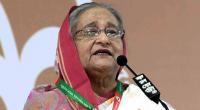 The United States has expressed its willingness to expand trade ties with Bangladesh but has sought further improvement in the investment climate and rights of workers.
The United States has expressed its willingness to expand trade ties with Bangladesh but has sought further improvement in the investment climate and rights of workers.
The US Trade Representative office raised its concerns during the fifth United States-Bangladesh Trade and Investment Cooperation Forum Agreement meeting in Dhaka, according to a statement released in Washington on Thursday.
“The US noted its concern at the pace of reforms intended to guarantee workers’ rights and safety standards and urged Bangladesh to increase collaboration with private and civil sector stakeholders in its ready-made garment industry,” said the statement from the USTR office.
The meeting also focused on increased market access for US agricultural products and financial services.
Bangladesh is a major exporter of ready-made garments to the United States and two-way trade between the two countries in 2019 totaled nine billion dollars. The two countries signed a bilateral investment agreement in 2013, and safety and rights of workers has often been raised during such bilateral discussions.
Bangladesh has been seeking the restoration of the Generalised System of Preferences (GSP) that remains suspended since the Rana Plaza building collapse in 2013. The USTR statement, however, does not mention any progress on the GSP demand.
“The US and Bangladesh stated their intent to boost trade and investment opportunities and facilitate the existing flow of goods and services,” it says.
Officials also discussed improvements needed towards effective protection of intellectual property rights, clear regulation and monitoring of the trade in pharmaceuticals and medical devices, and a commitment to enable the digital economy.
Workers’ rights and safety norms in Bangladesh have been a major concern for US trade groups despite large scale reforms carried out by the government in the last few years. International monitoring groups funded by apparel brands regularly inspected factories until May 2018, when the monitoring mandate came to an end.
The monitoring groups reported “unprecedented improvements” to factory safety. But the safety concerns are being raised again and being widely reported in the US media.
“With the international monitoring deals winding down, Bangladesh’s factory owners, many of whom serve in Parliament or own newspapers and television stations, want to return responsibility for safety to Bangladesh,” the New York Times reported last week.
The Newspaper quoted Michael Posner, a professor of ethics and finance at New York University’s Stern School of Business, saying: “The government of Bangladesh is not prepared to have outside groups lead this process going forward. The question now is how to sustain this progress as leadership shifts to local hands.”
Human Rights Watch, too, reported that garment workers in Bangladesh still face lower wages and exploitation as fashion brands have failed to compensate factories for safety improvements, while piling pressure on garment suppliers to keep prices low and make clothing faster.


